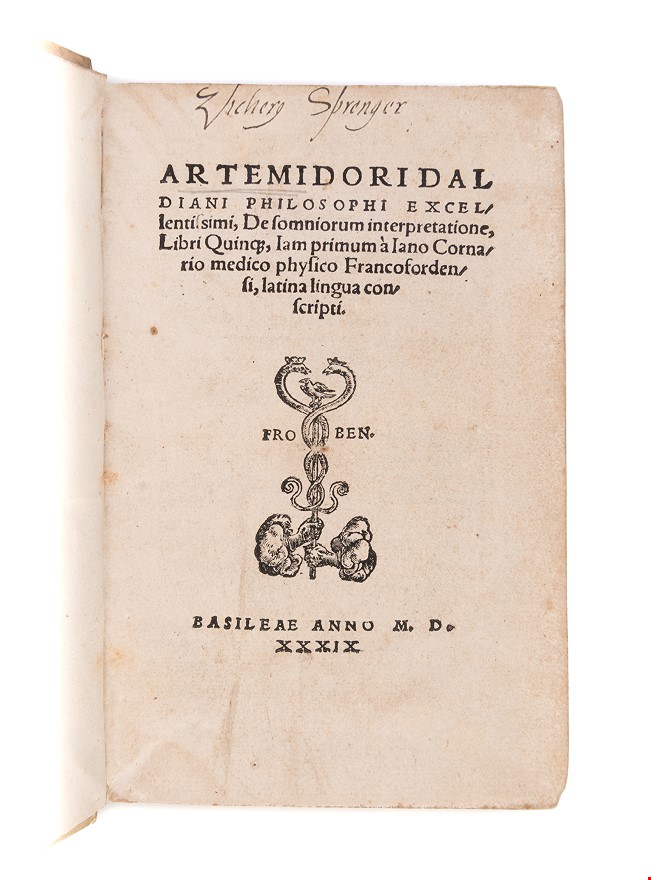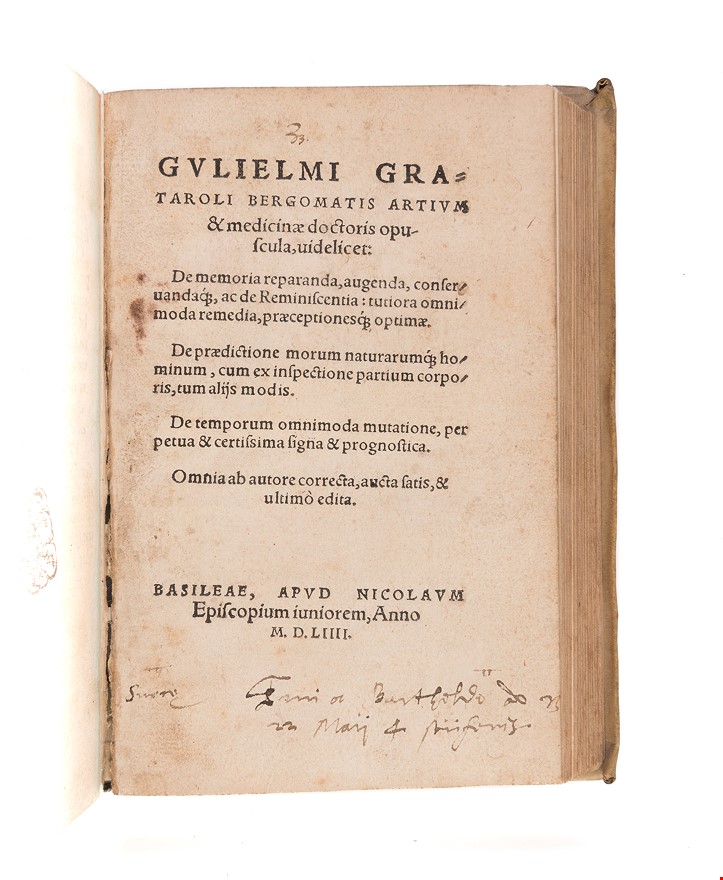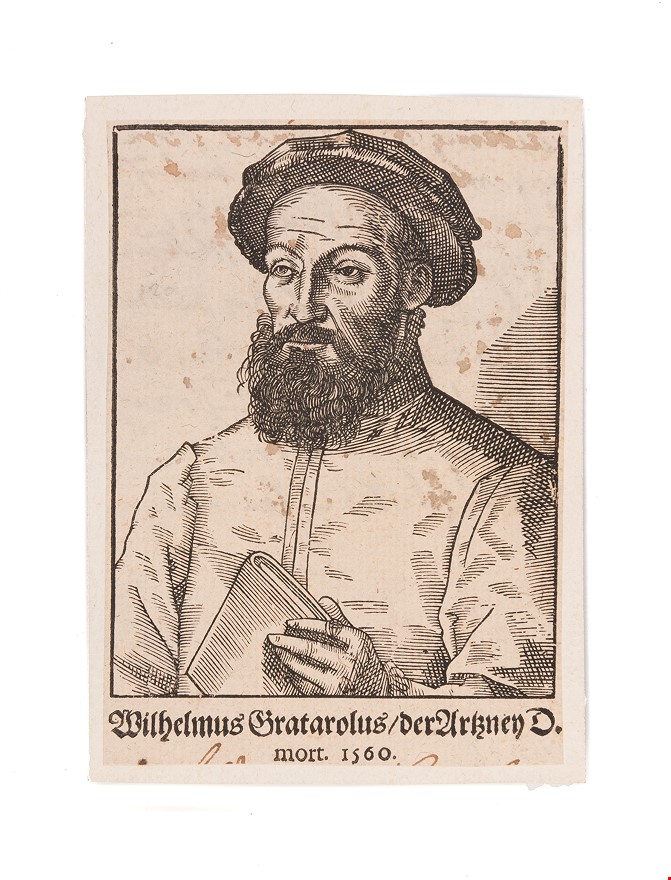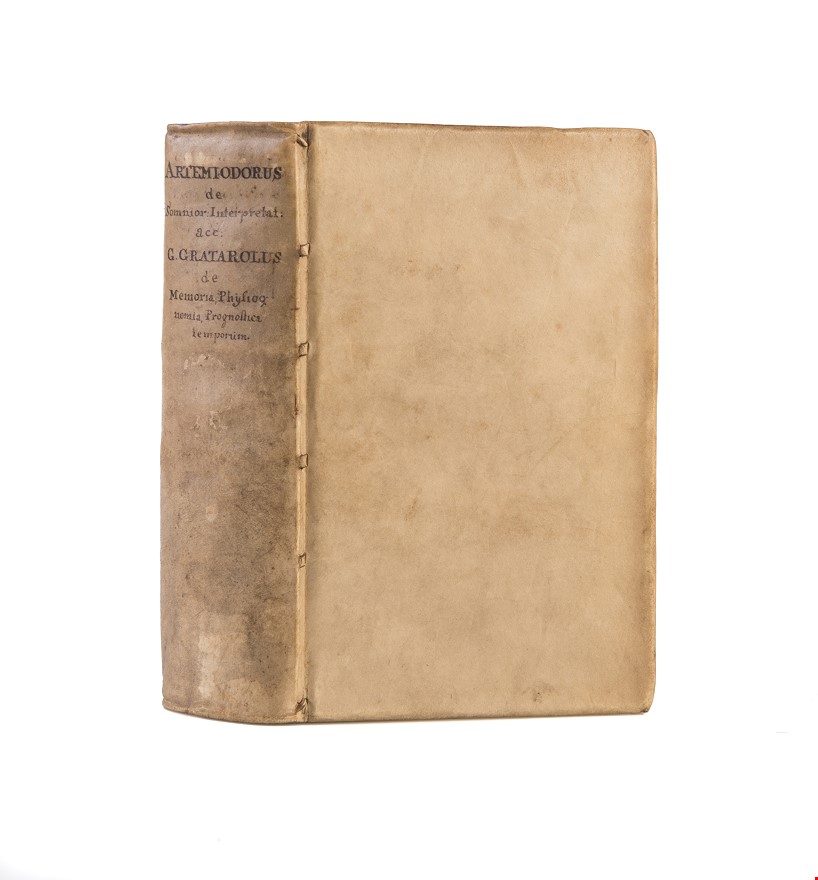De somniorum interpretatione. Basel, Johann Froben, September, 1539. (with:) GRATAROLI (Guglielmo). De memoria reparanda. Basel, Nicholas Episcopius, March, 1554.
ARTEMIDORUS Daldianus (1539.)
£2750.00
Please contact us in advance if you would like to view this book at our Curzon Street shop.
EARLY DREAM INTERPRETATION, KNOWN BY FREUD
Froben's caduceus device on title page and verso of final page in first volume; printer's device on verso of final page of second work, woodcut initials throughout.
8vo (164 x 102mm). 479, [1]pp.; 258, [6]pp. (with additional contemporary woodcut portrait, mounted, of 'Wilhelmus Gratarolus' interleaved between the two works). Later vellum with yapp edges, titles in neat manuscript on spine.
The extremely rare first edition of the first Latin translation of Artemidorus' authoritative, and influential treatise on the interpretation of dreams. A figure of enduring importance in the history of thought and the subconscious, second-century divine Artemidorus was deemed an authority by both Sigmund Freud and Carl Jung. The Latin translation is by the Saxon humanist Janus Cornarius (1500-58).
'The only dream book to survive from Antiquity' (Price, p32), Artemidorus' work is divided into five books. The first two - augmented by the third - 'are organized systematically by subject matter, starting with dreams of being born, continuing with the body, public occupations and the gods, to dreams of death' and are dedicated to Cassius Maximus, likely Greek philosopher Maximus of Tyre. The fourth is addressed by the author to his son and provides practical advice on successful dream interpretation, including advice on gaining the upper hand in debates with other dream interpreters; the fifth and final analyses just under 100 dreams, each numbered, said to have come true. Artemidorus engages in philosophical and theological debates about the nature of dreams and their interpretation - including passages on the role of sex and sexuality that would prove to be influential in twentieth-century psychoanalytical thought - though his primary interest was the capacity of dreams as predictions of the future, so-called oneiroi.
Janine Riviere in Dreams in Early Modern England (2017) describes it as 'perhaps the most influential dream book in the western tradition'. It was this edition that Thomas Hill consulted for The moste pleasaunte arte of the interpretacion of dreames (1576); '...Hill may have had access to this edition of Artemidorus in the library of John Dee'.
It is bound here with Italian alchemist and physician Guglielmo Grataroli's (1516-68) treatise on the power and maintenance of memory and physiognomy, first published in 1553 at Zurich, and dedicated to Maximilian of Bohemia.
Provenance: I. Ownership inscription of 'Zicherij (?) Sprenger' on title page, hole to outer blank margin of final leaf, not touching text. II. Title page inscription in (different) humanist hand, possibly 'suore', with date '22 Maij', annotations throughout, with some loss due to trimming, and apparent underlining and scoring through of certain phrases, concentrated especially at the front of text.
I. VD16 A3825. BMSTC (German), p.48. Adams A2036. II. VD16 ZV 20502. BMSTC (German), p.365. Adams G1029. Brunet II, 1713.
Ref: S. Price, 'The Future of Dreams: From Freud to Artemidorus', Past & Present, 113 (1986), pp.3-37. J. Riviere, Dreams in Early Modern England (Routledge, 2017)..
Stock Code: 234549







